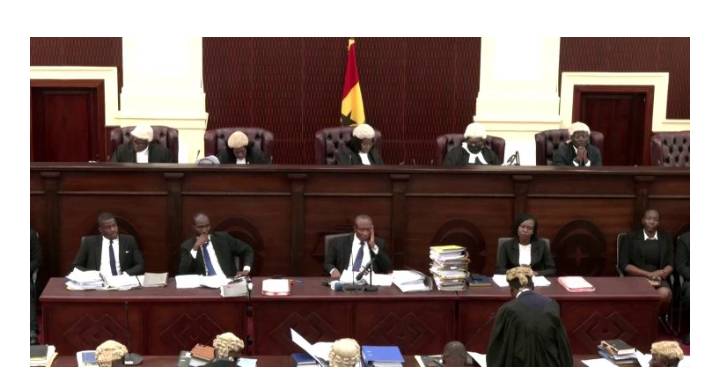The Supreme Court of Ghana is set to deliver a pivotal judgment today regarding Speaker Alban Bagbin’s recent decision to declare four parliamentary seats vacant. This ruling comes amid an intensifying political debate over the scope of the Speaker's authority and its constitutional limitations.
The case, brought by Alexander Afenyo-Markin, leader of the New Patriotic Party (NPP) caucus in Parliament, contests Speaker Bagbin’s September 17, 2024, declaration. Bagbin had ruled the seats vacant based on his interpretation of constitutional requirements, arguing that the four Members of Parliament in question violated provisions justifying their removal from office.
At the heart of the matter lies the Speaker's interpretation of the 1992 Constitution regarding parliamentary vacancies and his authority to act without judicial input. Afenyo-Markin argues that Bagbin overstepped his constitutional boundaries by unilaterally declaring the seats vacant, a decision that, according to Afenyo-Markin, undermines the judiciary’s role in constitutional interpretation. He maintains that only the judiciary has the power to interpret constitutional disputes, asserting that the Speaker’s actions bypassed due judicial process, thereby disenfranchising voters in the affected constituencies and denying them their right to representation.
In response to Afenyo-Markin’s legal challenge, the Supreme Court had earlier issued an injunction preventing any further actions regarding the vacated seats until the matter was resolved. However, Speaker Bagbin pushed back, filing a motion to reverse the injunction. He argued that the court’s decision interfered with his responsibilities as Speaker, emphasizing that his actions aimed to uphold parliamentary integrity and comply with constitutional principles.
The Supreme Court subsequently dismissed Bagbin’s motion to reverse the injunction, maintaining its initial ruling. This decision has set the stage for today’s landmark judgment, which will clarify the constitutional boundaries of the Speaker’s authority concerning parliamentary vacancies and the role of the judiciary in such determinations.
This case has brought renewed attention to the delicate balance of power between Ghana’s legislative and judicial branches, underscoring the ongoing debate about checks and balances within the nation's democratic framework. A decision in Afenyo-Markin’s favor would reaffirm the judiciary’s central role in constitutional interpretation, limiting the Speaker's authority to act without judicial oversight. Alternatively, a ruling favoring Bagbin could set a precedent allowing parliamentary leaders more autonomy in enforcing constitutional compliance within their chambers.
The Supreme Court’s ruling is expected to impact the conduct of parliamentary leadership and possibly influence future interpretations of constitutional authority. This decision, anticipated by citizens and political analysts alike, will provide a significant precedent for the separation of powers in Ghana’s political structure, particularly concerning the Speaker’s role.
Source: Citi Newsroom




No comments yet
Be the first to share your thoughts!